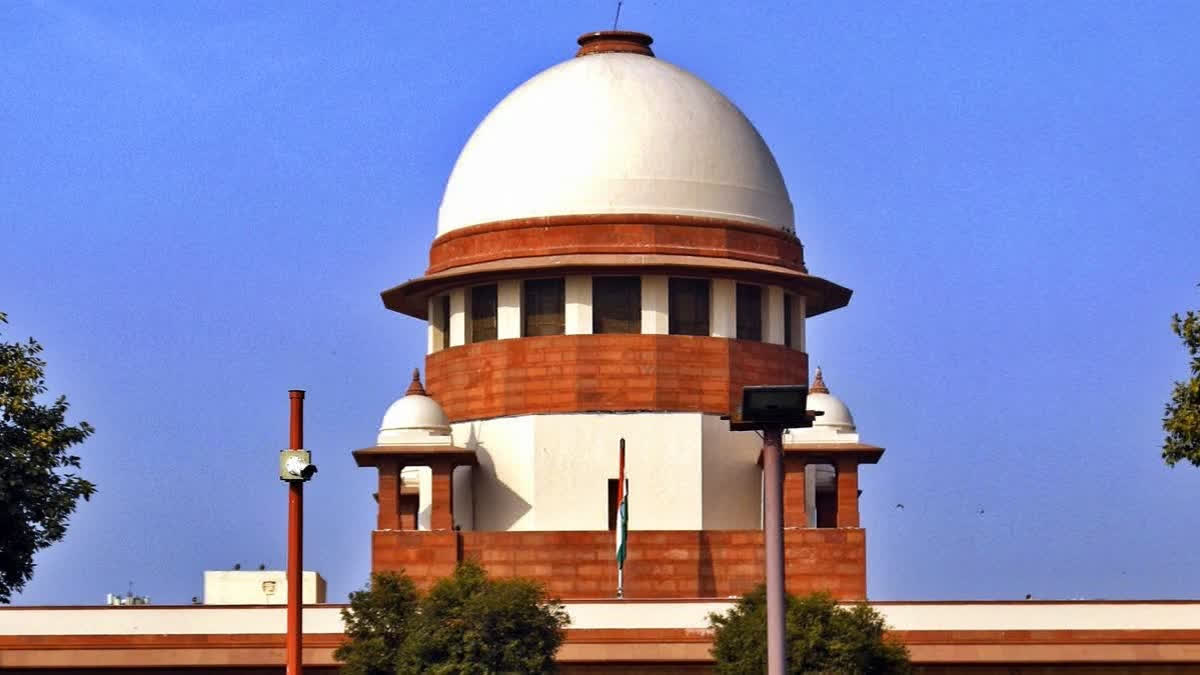New Delhi: The Supreme Court Tuesday said that the Constitution of Jammu and Kashmir was neither at par or superior to the Constitution of India and pointed out that the President appoints Judges to the High Court of Jammu and Kashmir and also transfers them.
A five-judge bench headed by Chief Justice of India D Y Chandrachud and comprising Justices S K Kaul, Sanjiv Khanna, B R Gavai, and Surya Kant, was hearing a batch of petitions challenging the abrogation of Article 370, which bestowed special status on the erstwhile state of Jammu and Kashmir. The top court, after hearing submissions for 16 days, reserved its judgment today.
Also read: SC reserves verdict on pleas challenging Article 370 abrogation
During the hearing, the Chief Justice told senior advocate Gopal Subramanium that the domain of the Constitution of Jammu and Kashmir was that which was defined by the Constitution of India. The Chief Justice said, “Therefore, this was not a constitution (of J&K) at par or superior to the Constitution of India…it can't be superior to the Constitution of India, nor it was at par with the Constitution of India….look at the definitions 2(1) (a), Constitution, means Constitution of India, as applicable in relation to the state”.
The Chief Justice cited Section 5 of the constitution of J&K and added that the domain of the Parliament to make laws for states will be defined by the Constitution of India (and) not by the J&K Constitution.
Article 5 of the J&K constitution says the executive and legislative power of the State extends to all matters except those with respect to which Parliament has the power to make laws for the State under the provisions of the Constitution of India.
Gopal Subramanium, representing a petitioner in the rejoinder argument, said "I would not like to say easily that the Jammu and Kashmir Constitution is inferior because it established courts of record and legislature and the Jammu and Kashmir High Court owes existence to the Jammu and Kashmir Constitution. The legislature of J&K owes its existence to this Constitution….These institutions of permanent nature established under the Constitution”.
The Chief Justice asked Subramanium, who would appoint judges to the High Court of Jammu and Kashmir. Subramanium said that is also provided, the Chief Justice of the High Court is involved and the Chief Justice of India is also referred to.
“The President will appoint Judges to the High Court of Jammu and Kashmir and the President will transfer judges of the High Court…”, said the Chief Justice.
Subramanium said yes, but I'm saying that the establishment of the institutions owe their genesis not to the Indian Constitution but to the J&K Constitution.
Senior advocate Zafar Shah, representing a petitioner, contended that residual sovereignty remained with the Maharaja and it got transferred over to the people. Shah stressed that it didn't go into Article 1 or 370, it has gone to the people and in the exercise of that residual sovereignty, the Constitution of J&K was made.
Shah contended that insofar as development is concerned, they say self-governance is better than good governance and said, “Give our self-governance back”. He said they say the nation has to grow but for it you need to win the hearts of people.
Senior advocate Rajeev Dhavan, representing Sajjad Lone-led J&K People’s Conference, said Article 370 is a compromise and one could find many compromises in the Constitution. He said take for example, Sikhs are allowed to carry their daggers and “You want to get rid of that? You'll have to have a Constitutional amendment. This is a compromise. The entire 6th schedule is a compromise”.
Dhavan said the Centre is not able to provide a roadmap for the restoration of statehood and submitted that a time will come when statehood is restored. He said this is no roadmap at all and is entirely illusory. Dhavan emphasized that democracy, reasonableness and federalism, which are systematic and structural principles, had been given a go-by through the decision to abrogate Article 370.
Also read: 'Truth is the soul of justice': SC sets aside Patna HC verdict handing down death penalty to man



